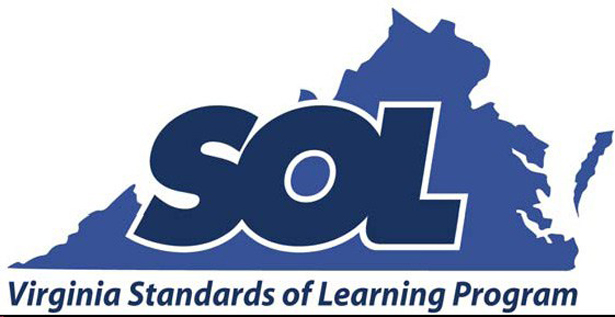
by Elizabeth Campbell
Growing up in Virginia provided me an incredible opportunity to have access to vast history of the United States at my fingertips. I was only a few hours’ drive from Washington DC, the nation’s capitol, surrounded by the homes of our founding fathers like Thomas Jefferson’s Monticello, James Madison’s Montpellier, and George Washington’s Mount Vernon. The capitol also provided me access to museums on art, history, air and space exploration and expansion, and natural history.
Some of the country’s finest higher education institutions were nearby. I went to high school next to George Washington and Robert E. Lee’s Washington & Lee, and the Virginia Military Institute. My childhood was spent an hour away from Thomas Jefferson’s University of Virginia. I attended Virginia Polytechnic Institute and State University.
My primary education in grade school was filled with a very diverse curriculum. I studied the sciences, all levels of math, the history and geography of the world and the United States, how the US government works, I read classical literature as well as more modern pieces, and I learned how to be analytical and apply what I learned. My K-12 schooling is the reason I have excelled so well in such a short time.
And it saddens me to hear that Virginia Governor Terry McAuliffe wants to do away with the testing of the Virginia US History Standards of Learning (SOLs).
Recent statistics have come out that only about a quarter of the US population can name the three branches of government. More than a third can’t even name any of their basic First Amendment rights.
The Virginia SOLs and their tests were created to make sure every student in Virginia was at least attaining a basic level of education and able to name the three branches of the government they live under.
These standards were never meant to be the cap of a student’s education, just the minimum amount of knowledge a student should have in English, math, science, and history. Key word here is minimum. These tests are just supposed to be guidelines for teachers, not the extent of what course work should consist of.
So why get rid of the history SOL testing while keeping English, math and science tests? The governor’s excuse was because so many students were failing the examination.
I am all about helping students succeed, but isn’t this counter intuitive? If many people were failing the Virginia driver’s license examination, we wouldn’t do away with the driving exam. We would reform the education program so that people learned the Virginia traffic rules and we had safe roads.
The same should apply to history and other basic subjects. If students are failing their examinations, then we need to take a step back and reexamine how we approach teaching this information.
There are two sides to all stories and for education it is the teaching and learning. A teacher can say that he or she taught a subject to students, but if 90% of the students cannot recall the subject matter, then there is proof of a serious disconnect in the teaching-learning process.
I was extremely fortunate to have wonderful teachers throughout my education. They were all passionate about the subject they taught and making sure students understood what they were learning. They cared about us and our future. And, because of that, the majority of my peers, including myself, did well on our end of year examinations.
So let’s go back to the example of a driver’s license exam. If we have a bunch of bad drivers on the road who don’t know the basic traffic laws, would we get rid of driving exams or would we require better lessons with a behind the wheel instructor and more class time instruction?
How is this any different for future citizens? Why would we send students out into the world without a basic understanding of American history, why the founders felt so compelled to stand up to the British and fight for liberty and freedom, or why we feel so passionately that when government is too big, it inhibits the individual’s growth.
While I was fortunate enough to receive my US History education in an advanced, AP course, it doesn’t take away from the fact that I learned more about my country in that year than I had at any other point in my education. It was not just because I was “on a college track.” In fact, many of my peers who were in a more technical and vocational education track also took advanced courses in subjects that interested them.
These students, more often than not, would excel greatly on these types of exams because their vocational education required them to learn in a way to pass an exam to be certified in a specific field. This goes to show that the issue is not with the exam, but in the way that a subject is taught.
Knowledge about history and government is so vital to be able to thrive as a citizenry. In Fahrenheit 451, Ray Bradbury paints the image of a dystopia where the people don’t know the history of their country. They don’t know of books or figures that provided them with a country.
If we don’t assure that the future of our country leaves their grade school education with enough knowledge to know when the government is overstepping its powers, much like the government in Bradbury’s novel did, then we will fall into a government with far too much control of its people. Knowledge is a strength that we should not deny the future of our country, or our future may be an American Dystopia where books are burned and technology controls everyone.

